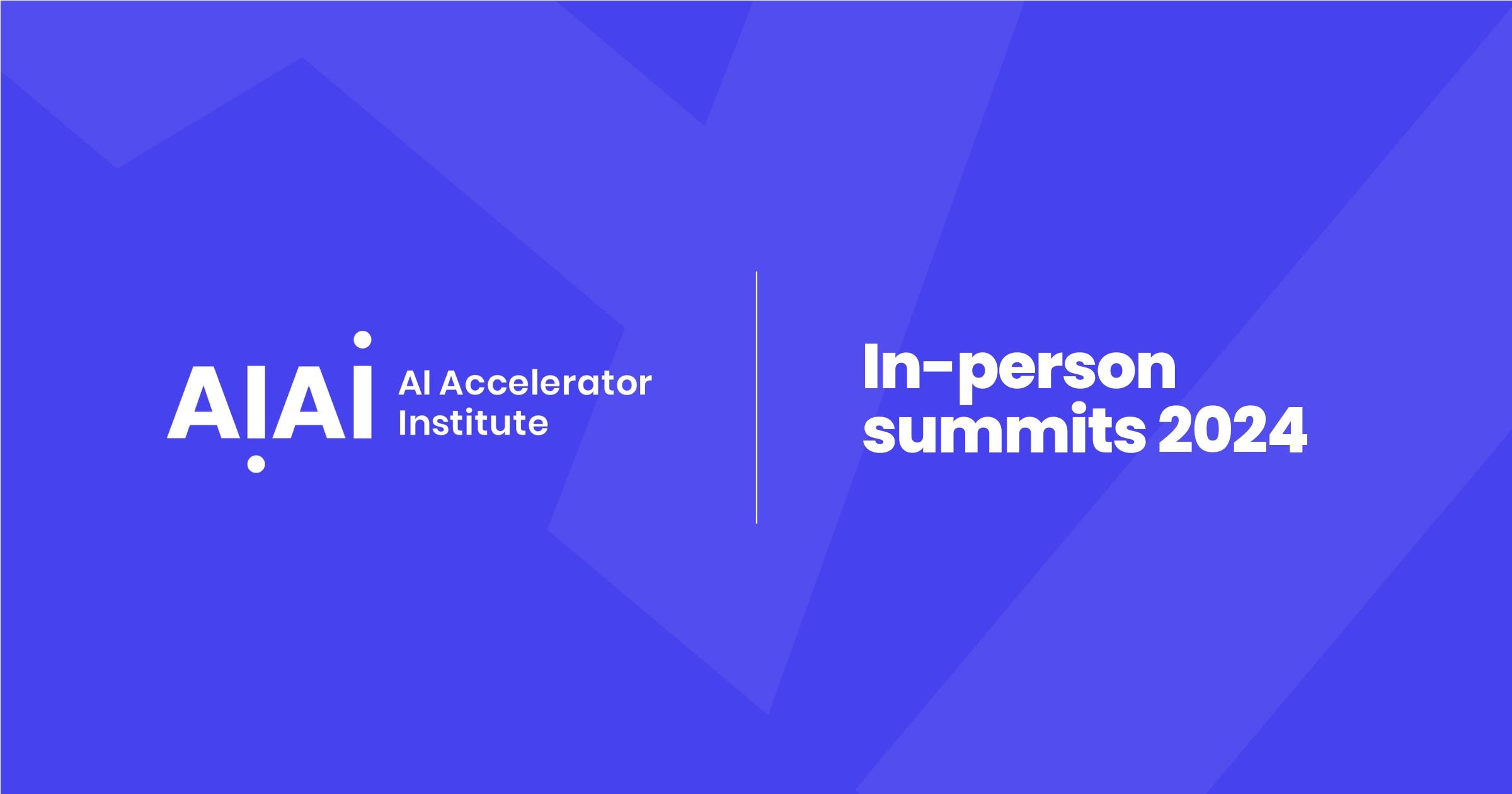Generative artificial intelligence (AI) is not just an awe-inspiring innovation capable of producing new text, images, videos, and more; it's also a powerful tool that has captivated global attention with its sophisticated functionalities and abilities.
However, its potential extends far beyond being merely a creative aide or chatbot. Generative AI is having a transformative impact on both human endeavors and business operations, especially in addressing some of the planet's most daunting challenges.
Among these challenges, the climate crisis stands out as a pressing issue. The global community is striving to achieve net-zero carbon emissions by 2050 to limit the increase in global temperatures to 2 degrees Celsius and prevent the irreversible consequences of climate change.
In this article, we go over the top 5 companies using AI for climate change:

VIA
Both institutions and businesses need to monitor energy consumption details to facilitate emissions reduction, on both a local and individual scale. For example, a company aiming to decrease the carbon footprint of its electric vehicle (EV) fleet needs insights into whether, in a specific area and time, EVs are being charged with electricity generated from renewable sources or fossil fuels.
Similarly, achieving energy efficiency in buildings requires detailed, individual-level energy data throughout an organization's property holdings. Ideally, if all data were openly shared, managing energy and reducing greenhouse gas emissions would be straightforward. However, accessing data at the individual level is often challenging due to privacy and security concerns, with many people hesitant to share specific details about their energy usage patterns.
Via Science, Inc. (VIA) offers a solution allowing organizations to lower their carbon footprint while making sure individual data remains confidential and secure. The firm employs zero-knowledge proofs, approved by the U.S. Department of Energy, to provide sustainability data, thus enabling organizations and businesses to track energy usage and achieve sustainability objectives without compromising on regulatory or privacy requirements.
Initially crafted for the U.S. Air Force, which faces stringent data privacy rules limiting access to essential energy and building management data, VIA's decentralized software solution permits authorized users and contractors to utilize generative AI models without data sharing. Instead of using private data for training or query input, the system, when prompted, creates a SQL query and front-end code that users can locally execute to retrieve and display data from their databases, using a tool named SLAM AI.
To optimize energy use and lower computing expenses, VIA adopts compact, open-source LLMs that operate on CPUs, continuously evaluating new models to keep pace with the swift advancements in LLM capabilities. Using Amazon Elastic Kubernetes Service (EKS), VIA efficiently integrates more effective models as they become available, ensuring a smooth transition between them.
CarbonBright
Determining the complete carbon footprint of consumer products, from production to disposal, involves a complex process known as Life Cycle Analysis (LCA).
CarbonBright utilizes AI to offer immediate evaluations of the environmental impact of consumer goods, covering every stage from their creation to their recycling. This innovation enables suppliers, brands, and retailers to effortlessly and precisely gauge a product's environmental effect throughout its entire supply chain.
As a result, it becomes simpler and more efficient for all parties involved to pinpoint areas with high emissions and shift towards more eco-friendly products and components.
CarbonBright's system is capable of calculating the emissions associated with products across extensive and diverse collections, using data science techniques to bridge any information gaps.
The accuracy and reliability of their approach are ensured through verification by independent third-party accreditors, aligning with recognized global industry norms.
When CarbonBright identifies an emissions hotspot within a product range, it provides tailored advice on how to lower emissions or replace certain materials and packaging with more sustainable alternatives, facilitating a more eco-conscious approach to product development and supply chain management.
BrainBox AI
The International Energy Agency (IEA) highlights that buildings are a significant consumer of global energy, accounting for 30% of worldwide energy usage and 26% of energy-related emissions globally. Addressing the energy consumption of buildings is essential in achieving net zero global emissions.
BrainBox AI is at the forefront of utilizing autonomous AI to lower carbon emissions and enhance the efficiency of commercial buildings, simultaneously enabling clients to save on energy expenses.
Leveraging AWS, BrainBox AI's cloud-based solution integrates with existing HVAC (heating, ventilation, and air conditioning) systems in buildings, autonomously issuing real-time optimized commands to reduce emissions and energy use without the need for human oversight.
For instance, BrainBox AI has demonstrated its capability to decrease HVAC energy expenses by as much as 25% and cut HVAC-associated greenhouse gas emissions by up to 40%. This is achieved by forecasting a retail store's temperature using historical and external data sources, such as weather conditions and energy pricing structures.
As BrainBox AI expands its portfolio, it employs generative AI to streamline the incorporation of new buildings into its system, significantly reducing setup time. Traditionally, identifying a new equipment piece in a building required engineers to painstakingly sift through dense technical manuals to extract essential information in a machine-readable format—a time-consuming task.
Now, with the aid of Amazon Bedrock, BrainBox AI can automatically extract data and create configuration files, a process refined by engineers afterward, known as power tagging.
This innovative approach, powered by Amazon Bedrock, has led to a more than 90% reduction in the time required for power tagging. Consequently, BrainBox AI can engage with more clients at a quicker pace, amplifying its contribution to addressing the climate crisis more effectively.
Kobold Metals
KoBold Metals is harnessing the power of artificial intelligence to uncover new sources of lithium, cobalt, copper, and nickel—crucial components for battery production.
The company's goal is to help decrease global reliance on fossil fuels by ensuring that 60% of all new light cars and trucks are electric by 2030, with a target of achieving 100% by 2050. This ambitious plan would see a surge from the current 10 million electric vehicles (EVs) on the road to 200 million by 2030, eventually reaching 3 billion by the middle of the century.
The transition to electric vehicles on such a large scale necessitates a reliable supply of battery materials. KoBold is using a combination of geoscience and extensive data on the earth's crust, enhanced with AI, to diminish the risks associated with mining these critical materials.
The company has developed two proprietary AI models to support its mission: TerraShedSM, an extensive database that compiles and organizes over a century of global data; and Machine Prospector, a suite of predictive models that analyze the data collected by TerraShedSM.
KoBold enjoys the support of notable investors, including Bill Gates's Breakthrough Energy Ventures, a16z, Bond Capital, Sam Altman, and T Rowe Price. Based in Berkeley, California, KoBold is expanding its workforce, currently boasting approximately 100 employees and actively seeking to fill more than 30 positions worldwide and remotely.
These openings, listed on Climatebase, range from geology and communications to data engineering and beyond, indicating KoBold's growth and its commitment to addressing one of the most pressing environmental challenges of our time.

Pendulum
Pendulum leverages artificial intelligence to tackle one of the most urgent global challenges: enabling organizations to achieve more with fewer resources. The company provides AI-driven solutions to complex issues in areas such as the commercial supply chain, global health, and national security, aiming for sustainable progress.
The importance of streamlining supply chains is underscored by their significant contribution to carbon emissions. Accenture reports that supply chains are responsible for 60% of global carbon emissions, and the U.S. Environmental Protection Agency notes that they can contribute to over 90% of a company's greenhouse gases.
The inefficiency of current supply chain practices leads to substantial resource and capital waste. For example, annually, approximately $562 billion is lost due to overstock, resulting in 17% of food products and 8% of retail and consumer goods being discarded.
Pendulum's AI technology empowers organizations to streamline their operations, minimizing waste, lost revenue, and unnecessary carbon emissions. Utilizing AWS, Pendulum's software can forecast demand, optimize supply planning, and track shipments, enabling more precise resource procurement and production to meet consumer demand.
For Pendulum to effectively deliver these solutions, accessing comprehensive enterprise data is essential. Yet, data often remains isolated within separate systems and unstructured formats like PDFs and text documents.
Pendulum designs its software to integrate these critical data sources for better operational decisions, using generative AI to swiftly extract valuable insights from complex documents, enhancing customer value.
A notable application of Pendulum's technology is in precision agriculture, where they refine a large language model (LLM) on AWS Trainium with a human-guided approach using Amazon SageMaker.
This process converts unstructured data into formats that agricultural machinery can utilize, optimizing the use of pesticides, water, and other resources. This not only prevents resource overuse and excess ordering, saving costs and minimizing environmental impact but also ensures compliance with local regulations and agricultural standards.
Pendulum has successfully cut the time needed to interpret these documents by 83%, now focusing primarily on data quality assurance. This efficiency gain reduces operational costs and facilitates the broader deployment of their technology, promoting scalable sustainability.
Dozens of AI leaders across the globe will be presenting AT AI Accelerator Institute World events. Sign up today for expert insights!




 Follow us on LinkedIn
Follow us on LinkedIn




